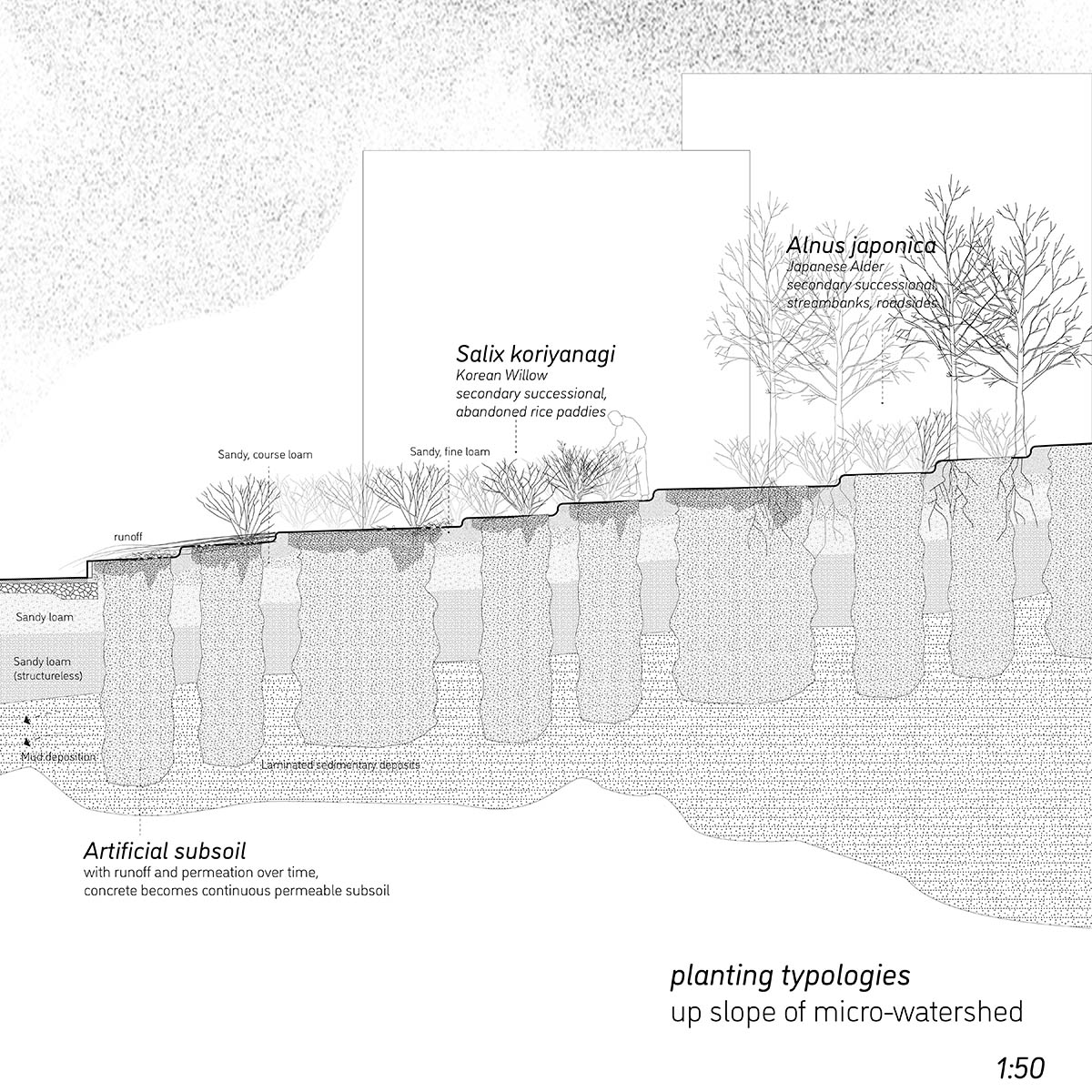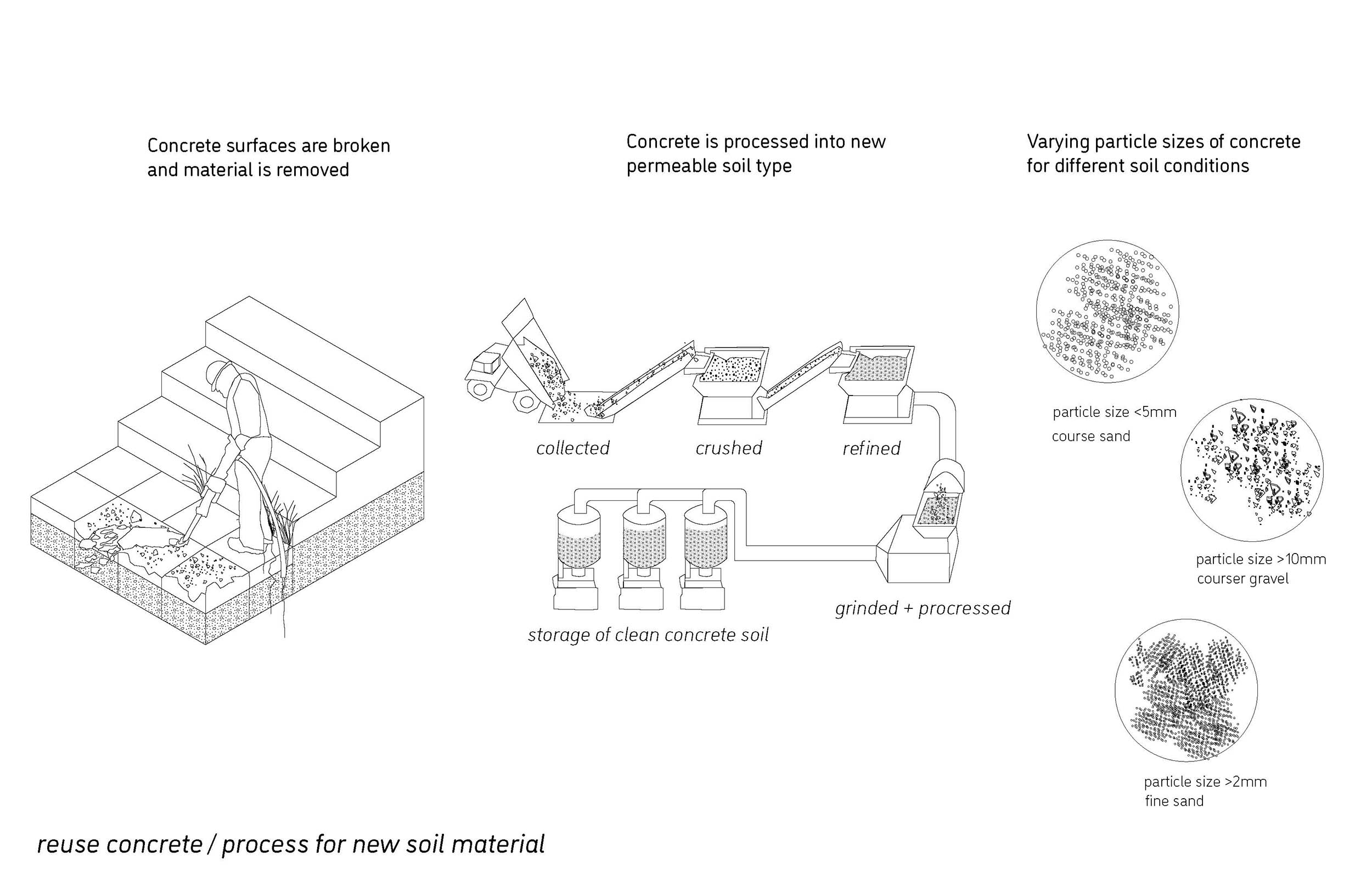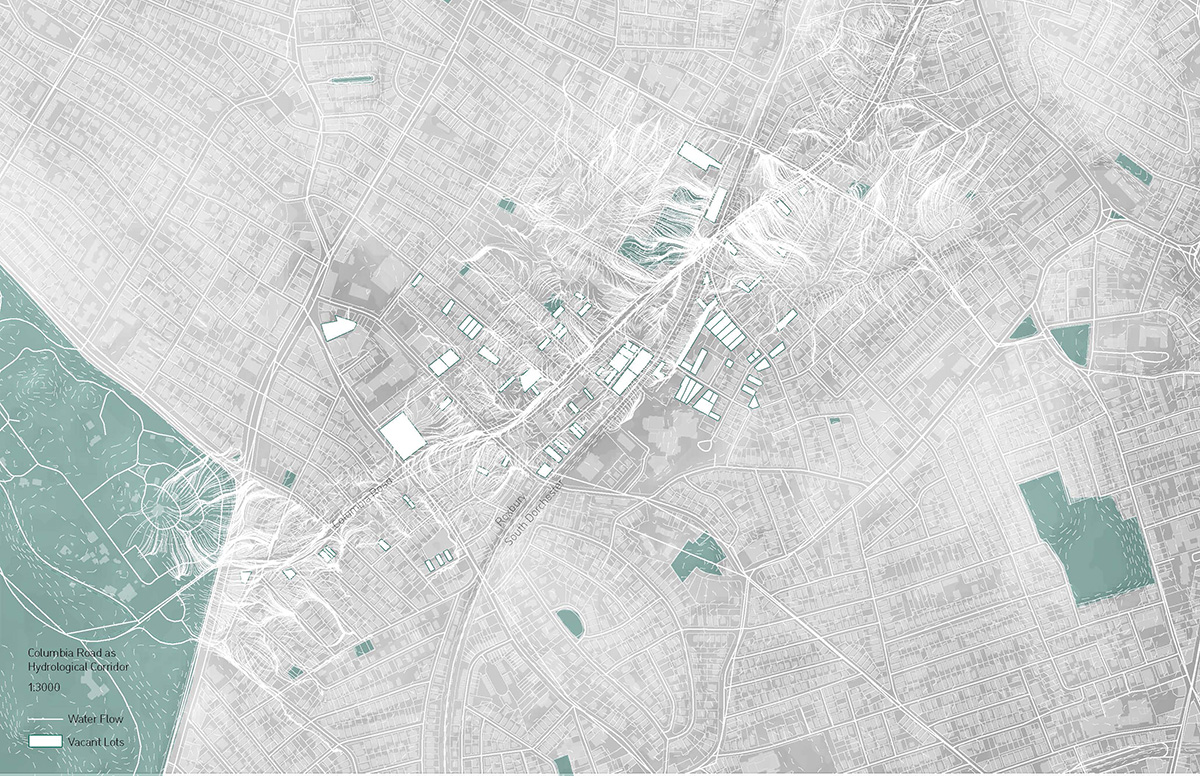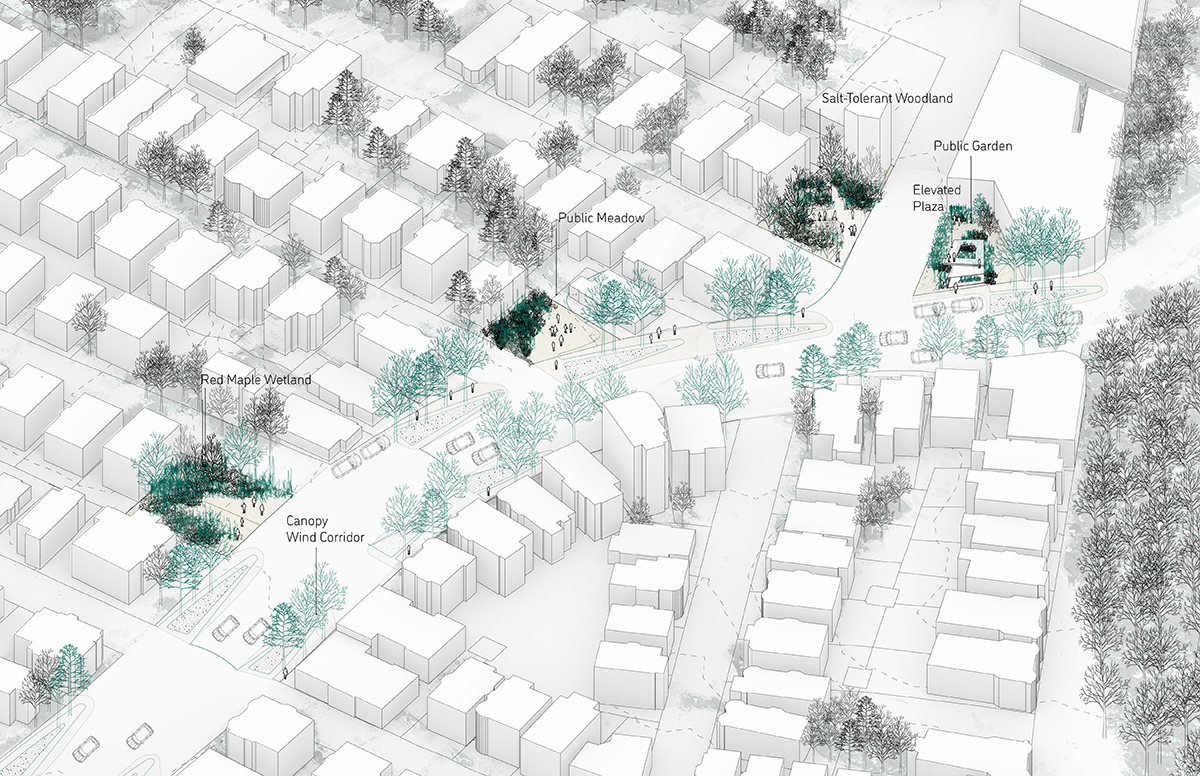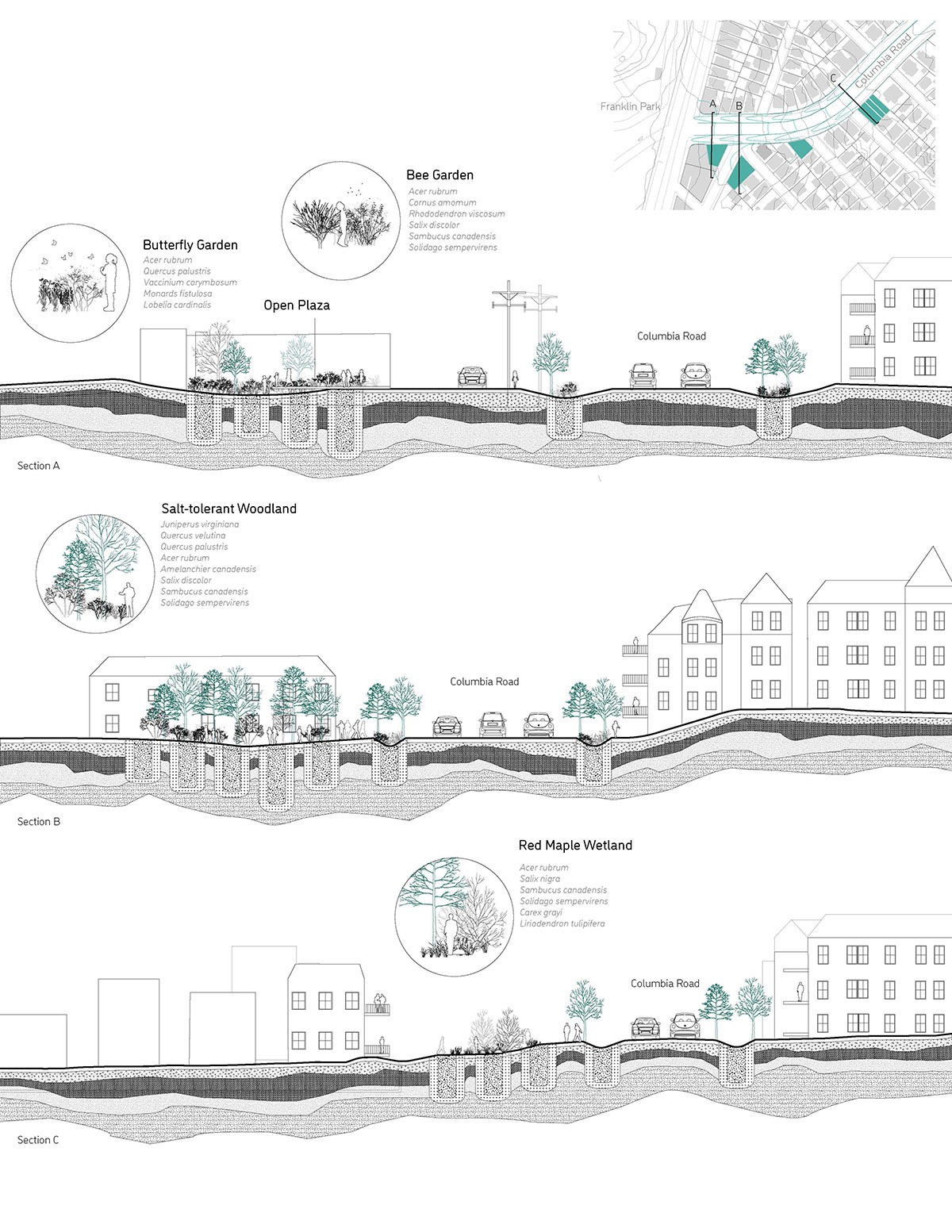Rewilding the Urban Block: Constructing Permeability through Artificial Ground
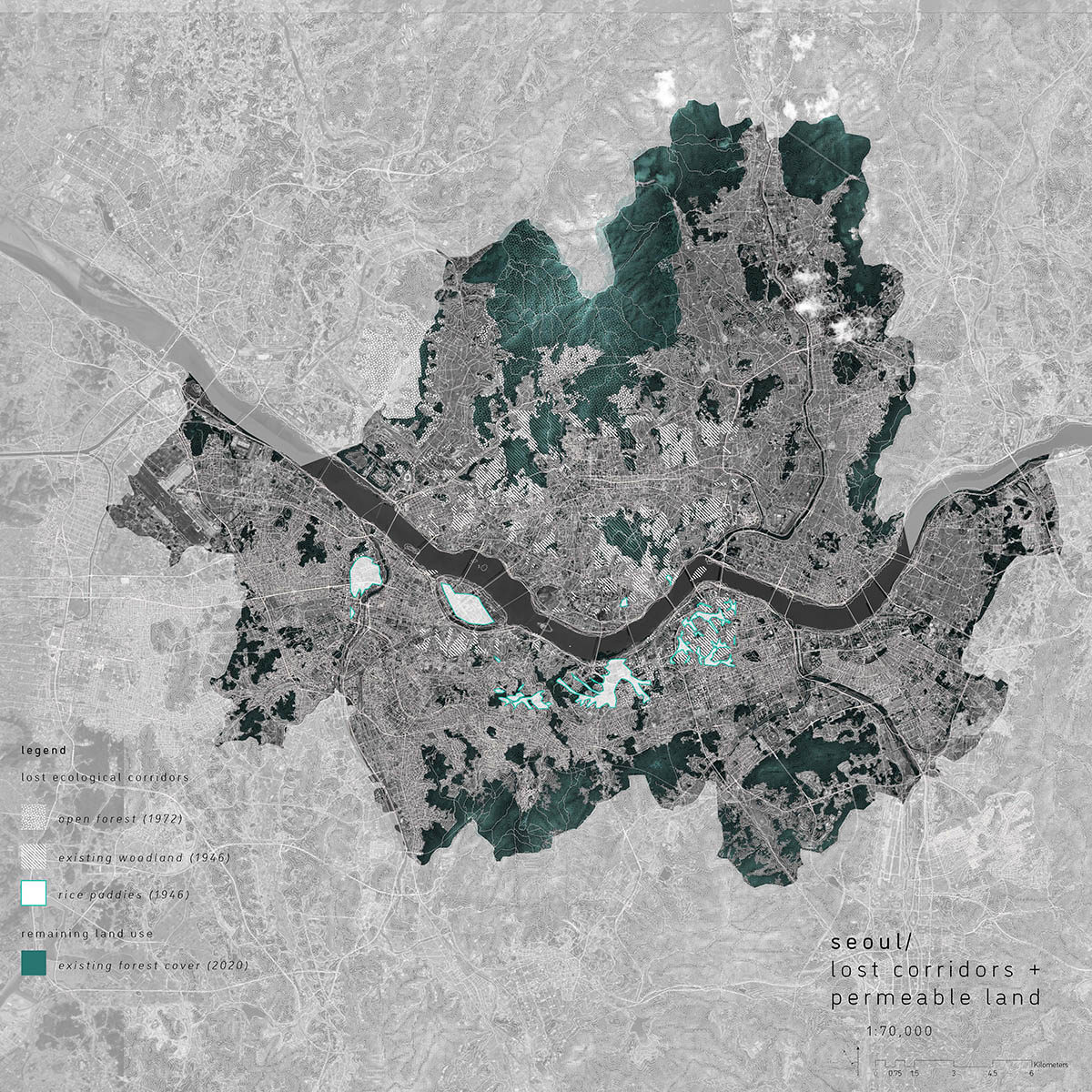
by Kari Roynesdal (MLA I AP/MUP ’21)
This project seeks to increase urban permeability in Seoul and Boston through the creation of an anthropogenic concrete subsoil, where over time, new geological layers below the surface transform to raise the water table along the edges of the Gangnam superblock in Seoul and Columbia Road in Boston. Rather than emphasize a pure reduction in impervious surface on these sites, this project investigates a deeper sectional analysis of urban ground, proposing a reuse of concretized infrastructure, processed to form a new permeable material. Over the course of several years, a deep section of Seoul and Boston shows a shifting and dynamic subsoil layer, shaped by runoff and hydrological processes, gradually connecting and raising the water table over time.
Both sites in Seoul and Boston share a past connection with muddy soils, such as rice paddy fields or marsh ecologies. With urbanization, these cultural landscapes have been erased from the ground, covered with concrete, and with climate change, have contributed to increasingly worse cases of urban heat and flooding. By analyzing existing land use, zoning, and development patterns in Seoul, a strategy emerges for which sites along the Gangnam superblock become ripe for densification and micro-watershed re-development. In Boston, existing vacant lots along the Dorchester Road corridor become activated as micro-wetlands and public gardens, in a context where public green space is rare and typically left unrealized. In the end, the project employs a similar urban strategy for two highly distinct sites, engaging a deeper sectional understanding of urban ground.
